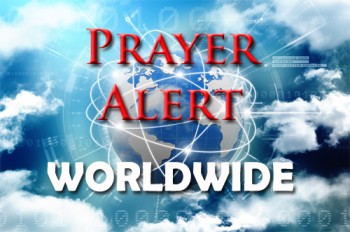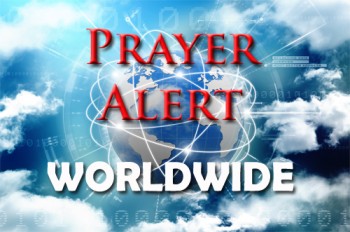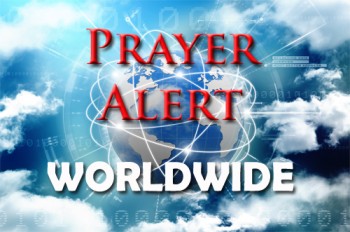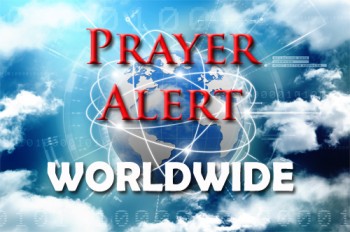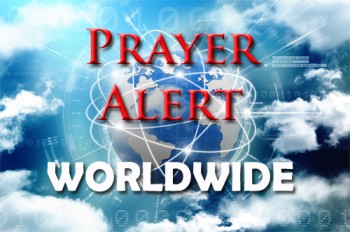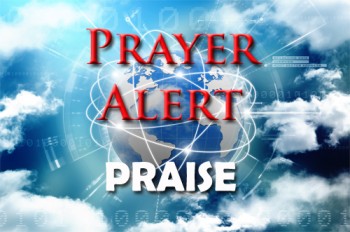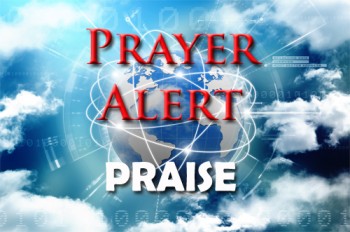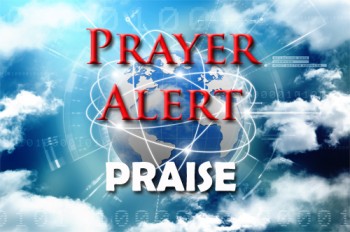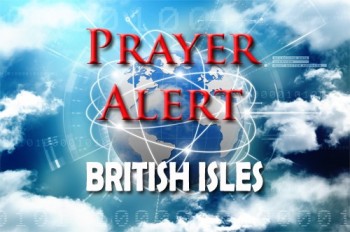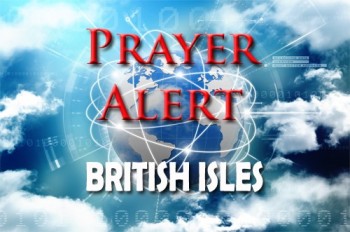
David Fletcher
David Fletcher is Prayer Alert’s Editor.
He is part of a voluntary team who research, proof-read and publish Prayer Alert each week.
If you would like to make a donation towards our running costs, please click here.
Protests against police brutality subsided after a violent crackdown: see Now the police chief has ordered more police resources after the curfew gave way to widespread vandalism and looting, including government food warehouses stripped bare. Shopping malls, TV stations, and banks were targeted, and also retail stores in popular Lagos shopping districts. Violence and looting have been reported in most states. Amnesty International said, ‘The turmoil has seen the worst street violence since Nigeria’s return to civilian rule in 1999. Wealthy politicians and individuals have been looted, emboldening hoodlums that crimes of this magnitude are achievable. In an effort to quell unrest, the government announced that the Special Anti-Robbery Squad (SARS) would be disbanded, and promised a host of reforms. But demonstrators are sceptical of government promises without clearly-specified timeframes. Pray for the police to successfully and peacefully prevent further hooliganism. See also
Conditions are ripe for another military takeover in Thailand. There have been 13 coups since the 20th century began. Today, any conflict between pro-democracy demonstrators and monarchy supporters could give the military an excuse to take control. Led by students, ongoing pro-democracy protests have been largely peaceful. Demonstrators want the current prime minister to resign, and they are calling for constitutional reform. Protestors appealed to Chancellor Angela Merkel yesterday after marching to the German embassy in Bangkok. Supporters of the Thai kingdom criticised this youthful movement saying, ‘Without a monarchy, there would be a civil war’. A lot of people trying to stand up for their lives and rights have others opposing them, leading to outbreaks of violence which are destroying society but also presenting a unique Gospel opportunity. The local church intends to be an agent of peace. Pray for Thai believers to stand out as peacemakers, drawing many to Christ.
Doctors say Covid-19 is now rampant in the refugee camps of Idlib, north-west Syria. The number of positive coronavirus cases rose tenfold in this region last month. Aid agencies say that due to a lack of testing, the real figure is expected to be much higher. In March the UN, aid workers, and doctors began to give stark warnings that camps for the displaced in this area of Syria could be devastated by a coronavirus outbreak. At that time they said 100,000 might die unless medical supplies arrived urgently. See Pray for nations to be generous in their giving, and for the aid agencies to be better funded as they work to distribute much-needed equipment, testing resources and medical advice to save lives. See
Philadelphia is critical to next week's presidential election. This week hundreds of protesters have been marching through the city demanding racial justice after police killed Walter Wallace, a black man suffering a mental health crisis. Police shot him because he wouldn't drop a knife. A police spokeswoman said that Wallace advanced towards them and they fired fourteen shots, hitting Mr Wallace in the shoulder and chest. She added, ‘One of the officers drove him to a hospital, where he was pronounced dead’. This statement is contradicted by bystanders and Mr Wallace's family lawyer, who said that the family called for an ambulance because of his bipolar disorder. Mr Wallace’s father said, ‘Why didn't they use a taser?’ The marches began peacefully but became more confrontational as the evening drew on. Protesters are looting and ransacking businesses. The National Guard has been deployed with officers in riot gear.
Louisiana and Mississippi were hit by two hurricanes and two tropical storms already this year; before recovering they are being hit again, by Hurricane Zeta, which is intensifying into a stronger-category storm as it moves north. Pray for five million residents preparing for the eye of the storm and the repair of damaged voting sites with the election days away. Across Indonesia high tides caused by the La Nina phenomenon in the Pacific has caused dozens of landslides and widespread flooding across most of 17,000 islands where millions of people live who are also bracing for further monsoon floods. Pray for emergency workers and residents, already battling the new coronavirus. May God assist them in responding to crises. A landslide at a coal mine on Sumatra killed 11 miners. After heavy rainfall over Vietnam a landslide killed 14 at an army barracks, burying many more. Typhoon Molave has now made landfall in Vietnam.
Recently the Ghana police, working with the department of social welfare and IJM, rescued nine children and arrested five suspects. We are thankful to the resilient and brave team who made this rescue possible. Please pray for further Ghana rescues. Four Filipino children were also rescued thanks to another multi-agency effort led by the Philippines Women and Children Centre. One suspect, believed to be a child’s relative, was arrested. Finally in South Asia ten people, including children, were rescued from bonded labour at a brick kiln.
Imagine a young girl being turned out into the streets, all alone, because she is too old to stay at the orphanage. Many of these orphans end up as victims of human trafficking and are sold into sex slavery. Many languish and suffer there for years with no hope of a better life. Stella’s Houses are homes for orphan girls who have been aged out of state-run facilities and are prime targets for sex traffickers. While living at a Stella’s House, the girls complete their education, learn life skills, and grow in an environment that changes their mind-set from 'I am just an orphan' to 'I am worthy of being loved'. Instead of becoming a child trafficking statistic, these children are loved and given a chance for a safer life.
A record number of Christians (108) are standing for election in the Egyptian elections being held between 24 October and 8 November. These Christians are on the four party lists, contesting 284 seats allocated to political parties in the parliament. There have been continuous positive messages from President Sisi to protect Egypt’s Christian community, one of the oldest and largest Christian communities in the region. In previous elections, Christian candidates were barred from running or forced to withdraw due to threats of violence. Attacks and pressure on Copts continue in rural areas, but this positive development is very welcome.
Cardiff university chaplains decided to organise ‘walk and talk’ sessions after other events were cancelled due to the Covid lockdown and a decision not to allow people from areas of the UK with high levels of coronavirus to visit. Rev David Sheen said that this academic year is more stressful for students than usual, particularly new students who would normally be able to socialise widely and meet new friends but are currently restricted in what they can do. Many are missing home, family, and pets, The ‘walk and talk’ events provide some sort of normality, with the opportunity to talk to chaplains, meet others, have some fresh air, and enjoy being with the dogs they are walking. Self-isolating students are invited to join the chaplains’ daily Zoom 'bring your own coffee’ and 'drop-in chat'.
Politics is concerned with serving the common good, weighing and developing solutions, stewarding resources in the public interest; music touches our experiences, tastes and emotions. Boris Johnson’s description of the NHS as ‘powered by love’ following his recovery from coronavirus was notable in its departure from this pattern. His tribute conveyed something out of the ordinary, reflecting an insight derived not from briefings or expert analysis, but through relationship and direct personal experience. Churches have more in common with music than politics. The greatest Christian commandments have to do with love for God and for other people. One expression of love is kindness, which we have seen in abundance during the coronavirus pandemic. Martin Luther King Jr said, ‘Power at its best is love implementing the demands of justice, and justice at its best is power correcting everything that stands against love.’

